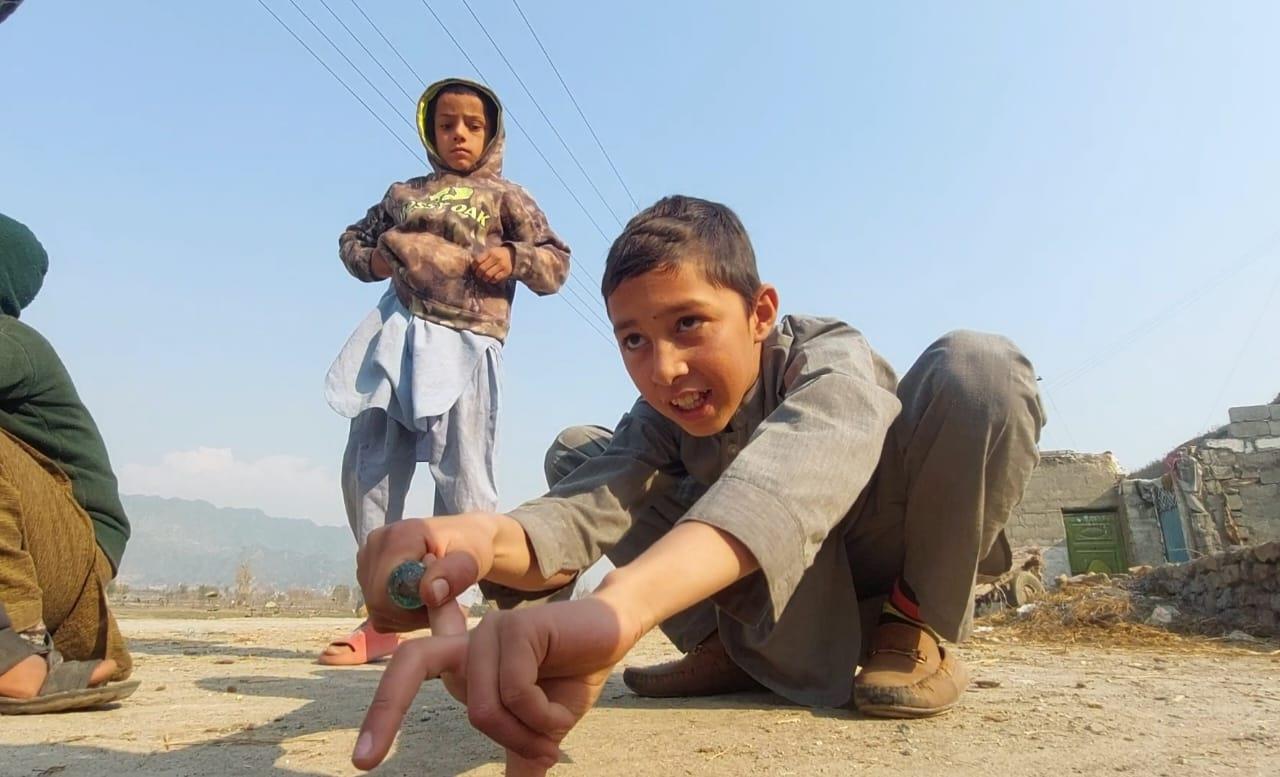
Fading Traditions: The Disappearance Of Pakistan's Cultural Games
To preserve this fading legacy, Muhammad Jamil Jamil Kachukhel, hailing from Alladhand Dheri in Malakand District, has documented these games in his book Oos De Yaadona Afsanay Khakari. Speaking to TNN, he shared the inspiration behind his work:
“One day, I asked my son about these traditional games, and he did not know of them. That's when I realized the urgency of preserving our cultural heritage. This realization motivated me to write the book, capturing the games we played in our youth without any formal research-just memories.”
Recalling Aankh Macholi, Kachukhel reflected on how the game evolved with age:
“As children, we would hide in corners of the house, but as we grew older, the hiding spots became more daring-sometimes even in old cemeteries. Back then, the game was not just about fun; it was also an expression of courage.”
Also Read: Life Paralyzed in Kurram as Routes Remain Blocked; Schools to Close Indefinitely, Protests Loom
Seventy-three-year-old Habib-ur-Rehman reminisced about the joy of gilli danda:
“Our greatest delight as children was playing gilli danda with friends in open fields all day, returning home exhausted in the evening. Today's kids may know the names of these games but never get the chance to play them. Summers were filled with riverside games, which are no longer seen. Occasionally, I pay children to play these traditional games, but the charm we experienced back then is missing.”
Similarly, Shafiullah Shalda, 70, spoke about shalghati, a game popular in Khyber Pakhtunkhwa:
“During rainy days, we played shalghati. One team would draw lines in secret locations, like walls, doors, windows, or the ground, while the opposing team searched for and erased them. The remaining undiscovered lines determined the score, and players faced a playful punishment called 'chapati'-a flick with two thumbs. These games not only built physical strength but also sharpened our minds, particularly in math.”
Other elders lamented the lack of opportunities for today's children to experience such games:
“The games we played as children are nowhere to be seen. Gilli danda, pitthogaram, and kite-flying have been replaced by PUBG, Free Fire, Temple Run, and Candy Crush. Children barely step outside, whereas we hardly return home from the streets,” they observed.
Rahmat Bibi reminisced about the games of her youth:
“Boys played gilli danda, pitthogaram, cops and robbers, and cricket, while girls engaged in games like gutte, skipping rope, hide-and-seek, and doll weddings. These games brought life to every street and neighborhood.”
In his message to the youth, Muhammad Jamil Kachukhel emphasized the value of these traditional games:
“These games are a vibrant part of our past, teaching us friendship, patience, courage, and physical activity. I hope the younger generation becomes familiar with these cultural treasures and incorporates them into their lives. The decline of traditional games is not just a cultural loss but also a setback for children's physical engagement. All of us must revive these games to ensure that future generations benefit from this invaluable heritage.”

Legal Disclaimer:
MENAFN provides the
information “as is” without warranty of any kind. We do not accept
any responsibility or liability for the accuracy, content, images,
videos, licenses, completeness, legality, or reliability of the information
contained in this article. If you have any complaints or copyright
issues related to this article, kindly contact the provider above.
Most popular stories
Market Research

- Versus Trade Launches Master IB Program: Multi-Tier Commission Structure
- Mutuum Finance (MUTM) New Crypto Coin Eyes Next Price Increase As Phase 6 Reaches 50% Sold
- Flexm Recognized As“Highly Commended” In The Regtech Category At The Asia Fintech Awards Singapore 2025
- Tappalpha's Flagship ETF, TSPY, Surpasses $100 Million In AUM
- Stocktwits Launches Stocktoberfest With Graniteshares As Title Partner
- Pendle Grows An Additional $318 Million TVL Just 4 Days After Plasma Launch



















Comments
No comment